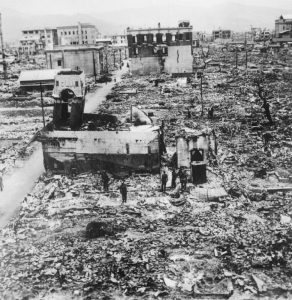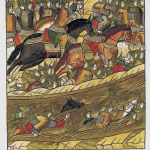Recently, I cleared out my pockets for pieces of paper scribbled on by me, and sorted through them with the intention of removing intellectual clutter from my life. What was so important, I wondered, about these thoughts, that I wrote them down and carried them around, possibly for weeks, even after I could no longer remember what any of them were? So I pulled them out and read them — a mixed bag of random pensées*, of no particular importance except perhaps to record what I was thinking about in the month of June 2024.
“Language and thought—a country needs to speak the same language to have unity.”
My thinking here was that if the language we speak reflects how we think, and how we think reflects who we are as a people, then a country in which people speak one or several different languages without sharing any one language in common is going to have trouble getting along. This failure to get along arises from our inability to understand each other in the most literal sense—what you say to me sounds like gibberish, and vice versa. If you expand this to the figurative sense, forget about it. We’re lost.
“Is it propaganda if it’s true?”
Modern people are much more savvy to the idea of propaganda than we used to be. Maybe the Internet opened our eyes. But what if a known source of propaganda puts out a story designed to support a particular viewpoint, and let’s say also that the story turns out to be true. Is it still propaganda? I’m going to say yes, because propaganda is at least partially defined by intent. If the intention is to deceive or manipulate, then it’s propaganda, pure and simple. Its trueness doesn’t change the fact that the wielder of the story did so with dishonest intent. Nor however does the fact that it’s propaganda make it false. This is an important distinction.
“Geopolitically speaking, all the places where we got the borders wrong are going to get fixed.”
Around the world, European powers have redrawn borders and created nations, often with little regard for the custom or desires of the local inhabitants. Eastern Europe has a particularly rich history of shifting borders, first as the long borderland between Russia and Europe, later as individual territories under the various empires that once ruled that part of the world. They’ve undergone a great many changes over the centuries, so many that one wonders if a region so much in contest and in flux can ever be stable.
Nevertheless, there are borders that are still being fixed to this day. This is not going to stop happening until all the people who speak the same languages live in the same countries. See “language and thought” above.
“America’s goal is global hegemony. It accomplishes this goal by means of regime change. The name of this game is ‘Let’s You and Him Fight**.’”
America’s method of obtaining regime change is by proxy, or to put it another way, by provoking war between America’s target and a convenient antagonist willing to fight a war in America’s stead. And while this methodology doesn’t produce much in the way of stable democracies, it’s ace at achieving regime change, which is really all we care about — as long as a “friendly” government is installed in its place.
“Good people are obliged to show they care; worrying is an obligation.”
I don’t agree with this position. It’s a huge waste of emotional energy and accomplishes nothing. But from a social standpoint, it’s considered bad form not to worry about the things that others worry about. And so we wrap ourselves in worry in order to fit in.
“If nothing matters, then there’s nothing to worry about.”
This is true, but most good people won’t agree that nothing matters. In fact, we’re expected to believe that everything matters greatly, which necessitates worry. See above.
“Express yourself through writing. Write for the future.”
Once interpersonal communication becomes impossible, you have only one resort if you need to express your thoughts — and let’s face it, we all need to express ourselves from time to time. That last resort is writing. As for your intended audience, it’s clearly not your contemporaries. They wouldn’t understand, and for all you know, you might be tossed into a dungeon somewhere for expressing unsanctioned views. Your audience is now limited to either yourself or some future reader who isn’t obsessed with who’s going to win the presidency. You are nevertheless assisted by the fact that having no living audience to please, you can say whatever you want — provided it’s true to you. You may feel lonely writing anonymously for no one, but remember that Voltaire spent the better part of his life in exile, and we still remember him today. (He did not give up writing or society, however. Maybe Voltaire is a bad example…)
That’s it for the latest crop of notes. I’m now able to throw out a half dozen small sheets of paper and the semi-cryptic notes they contain, while the thoughts themselves are preserved and extended, if not into eternity, at least for the near future, which is ample for my purposes. As for the one sheet of notes I did not include, it was a rambling two paragraphs on AI, the topic de jour for sure. Not that it matters. I’ll have plenty of time to think about that in the future, although by then, AI will no doubt have rendered thinking obsolete.
* One of the sheets of paper contains a sketched arrangement of three pansies, under which is written the word, Pansies. I hereby dedicate it to André Breton.
** “Let’s You And Him Fight” is actually one of the “games people play” from the 1964 book of the same name by psychiatrist Eric Berne. Giving snappy names to his games is part of the reason the book was so popular.









